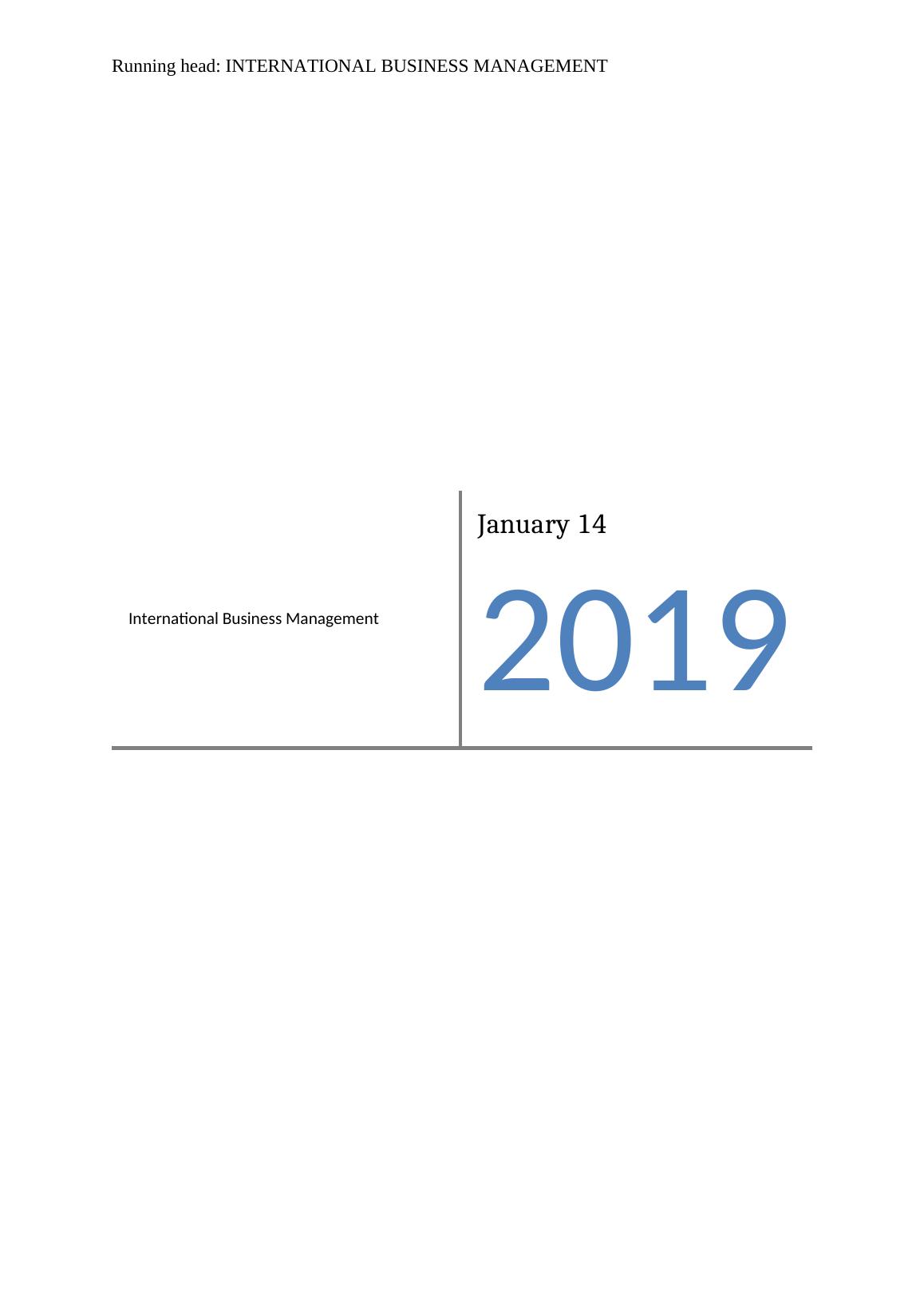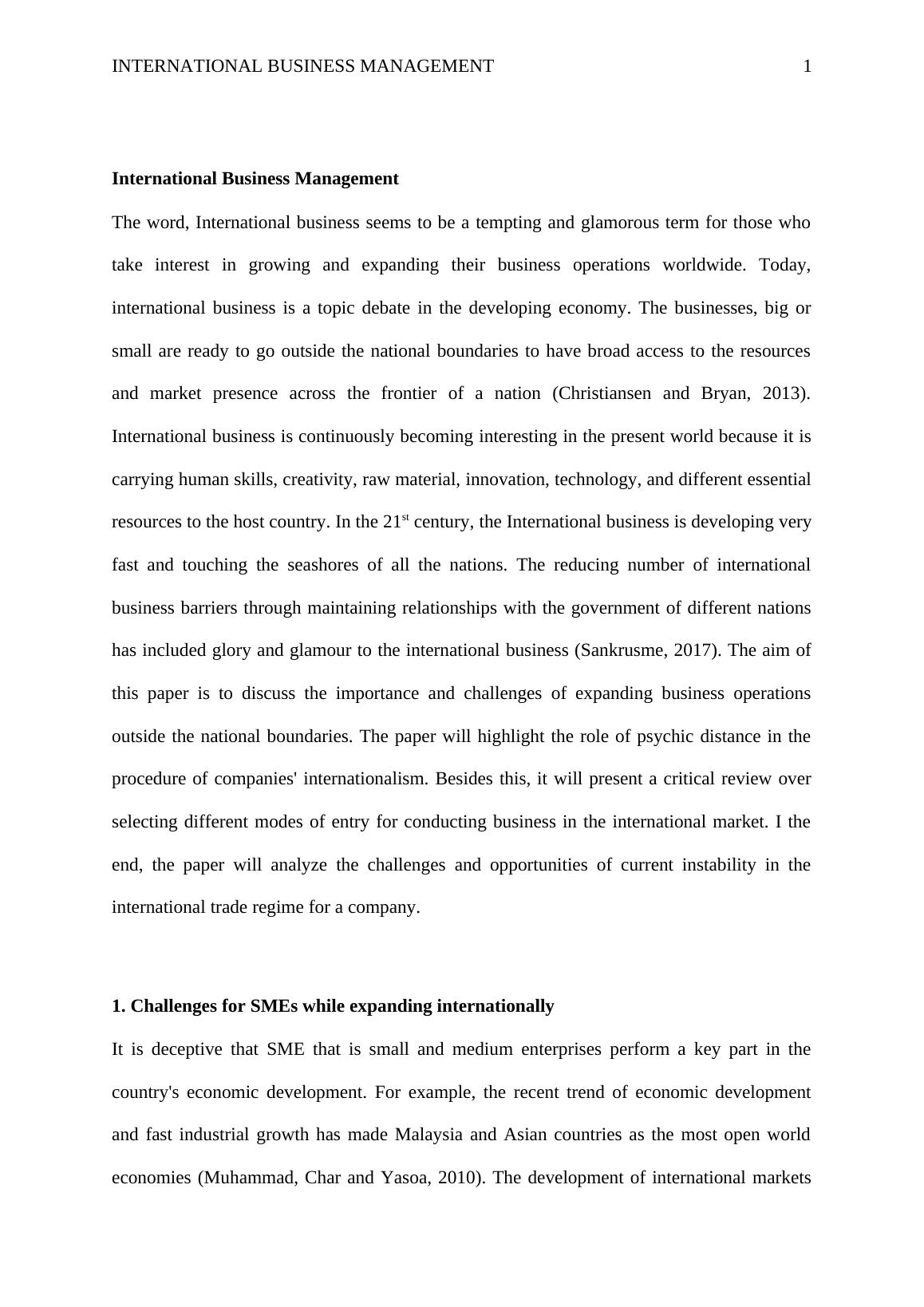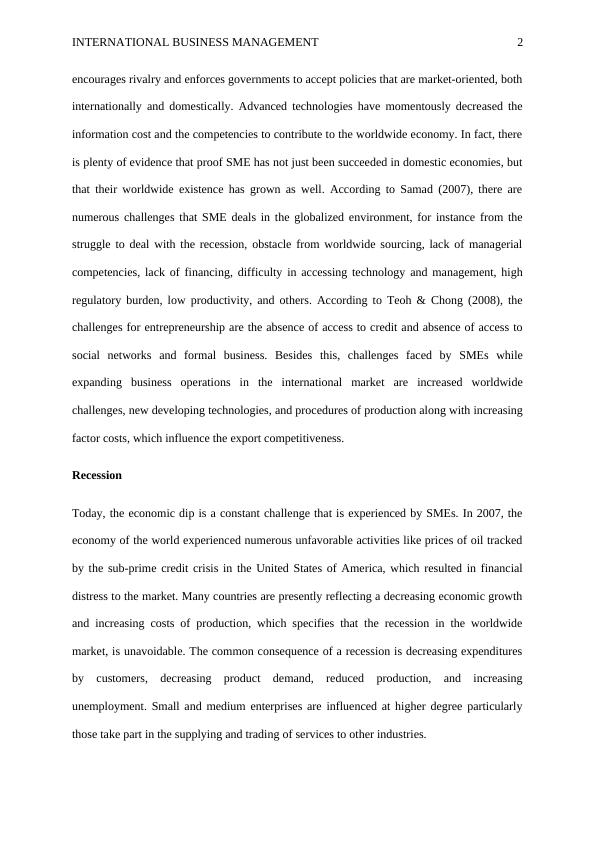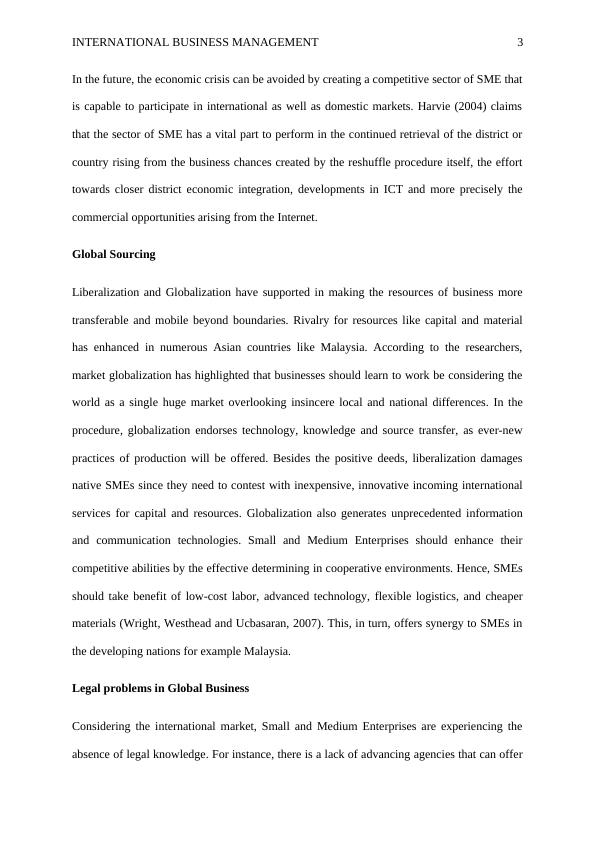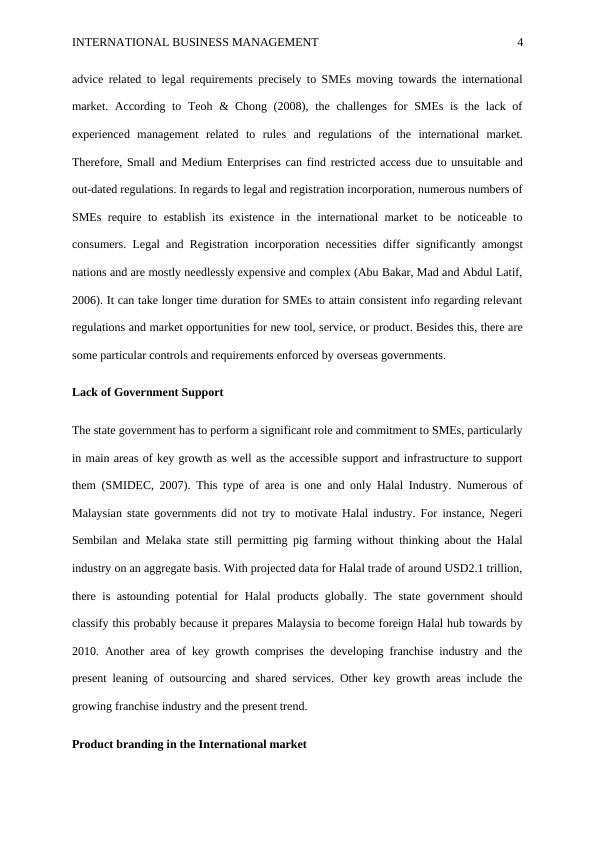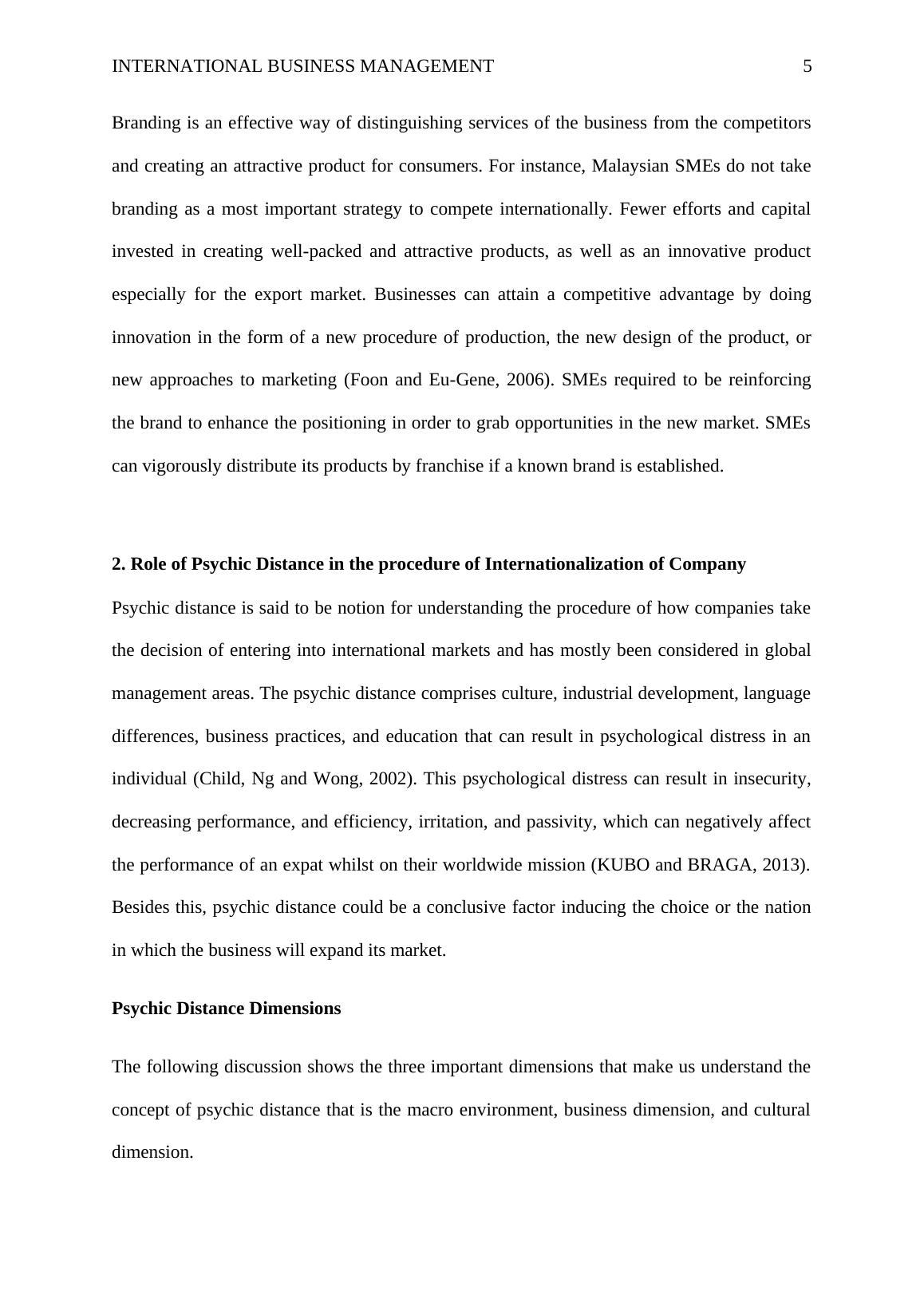Challenges and Opportunities in International Business Management
Answer all four questions related to challenges faced by small and medium sized companies when expanding internationally, the role of psychic distance in internationalization, considerations for foreign market entry mode, and challenges and opportunities for an international company due to instability in the international trade regime.
Added on 2023-04-21
About This Document
Challenges and Opportunities in International Business Management
Answer all four questions related to challenges faced by small and medium sized companies when expanding internationally, the role of psychic distance in internationalization, considerations for foreign market entry mode, and challenges and opportunities for an international company due to instability in the international trade regime.
Added on 2023-04-21
End of preview
Want to access all the pages? Upload your documents or become a member.

